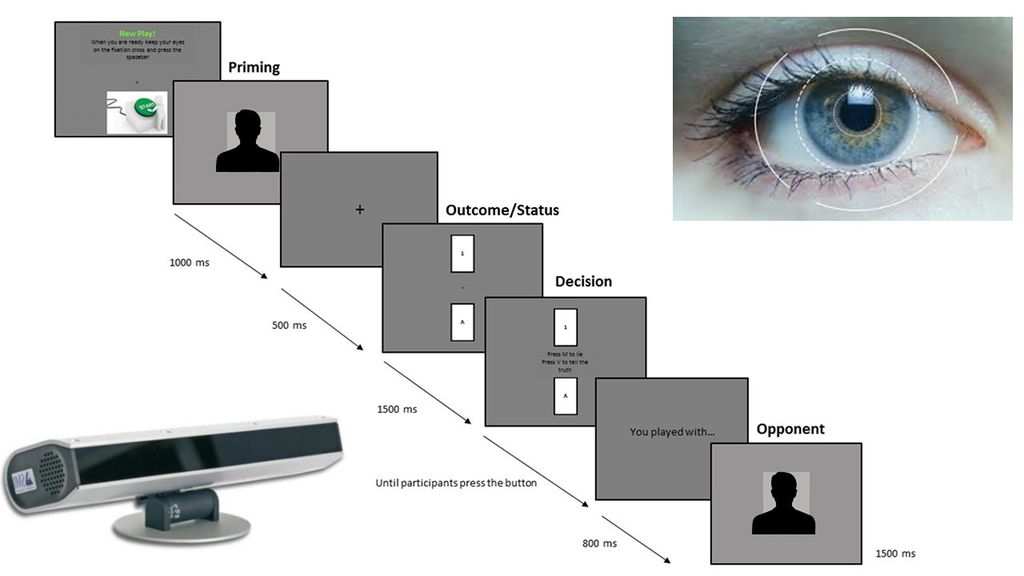
I can see it in your eyes! Oculomotor behavior tracks the effect of ideological priming on deception
Eyes never lie. There are those who say they are the mirror to the soul.
From eye movement, it is possible to understand whether a person is lying or telling the truth, obtaining, at the same time, useful information about the reasons and modalities behind such behaviours and their consequences.
This is what the researchers Michael Schepisi, Giuseppina Porciello, Salvatore Maria Aglioti and Maria Serena Panasiti of the Department of Psychology of Sapienza University have shown in a new paper published on the journal Scientific Reports.
The study's primary purpose was to investigate whether the presence of political stimuli of different nature (politicians' faces vs ideological words) and associated with different ideologies (left vs right) could influence the tendency of politically undecided people to lie. Moreover, through the recording of the participants' eye movements, it was possible to have an attentive index able to predict the decision-making process leading to such behaviour.
Specifically, the outcomes show how certain ideological words (e.g. "sharing", "tolerance") can be used more effectively to convey messages that affect the participants' moral behaviour, leading them to lie more for the benefit of others and less for their own personal interests.
For the experiment, participants were asked to engage in a card game against opponents of different socio-economic status and a money prize was offered. To win the prize, players could decide whether to lie or tell the truth to their opponents about the outcome of the game.
"The analysis of the participants' eye movements - says Michael Schepisi of Sapienza University, lead author of the research - also highlighted how ideological stimuli had influenced their decisions during the game by shifting the focus of their attention. Following the exposure of left-wing stimuli, the participants tended to pay more attention to the information related to the status of their opponents than to the result of the game. This affected their behaviour and resulting eye contact depending on the socio-economic position of the opponents themselves."
The researchers noticed that participants modelled their behaviour by lying less to low-status opponents, i.e. those perceived as probably "weaker". Moreover, after lying, participants averted their gaze from high-status opponents and maintained it towards low-status ones.
"The results of our study, which is part of the ERC Advanced Grant eHONESTY project," - concludes Salvatore Maria Aglioti - "offer new evidence on how ideological priming can influence moral decision making and suggest how oculomotor behaviour can provide crucial information on how this process takes place."
References:
Oculomotor behavior tracks the effect of ideological priming on deception - Michael Schepisi, Giuseppina Porciello, Salvatore Maria Aglioti & Maria Serena Panasiti - Sci Rep 10, 9555 (2020) https://doi.org/10.1038/s41598-020-66151-1
Further Information
Michael Schepisi
Department of Psychology
michael.schepisi@uniroma1.it
